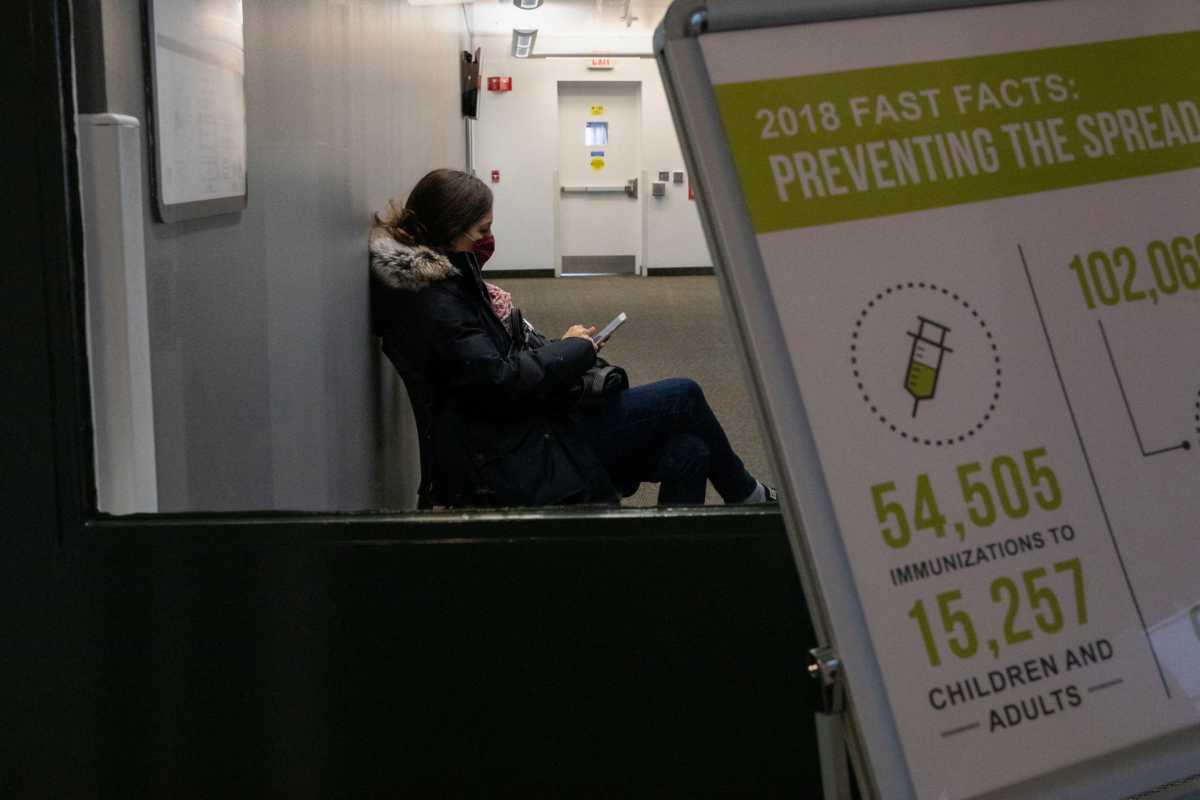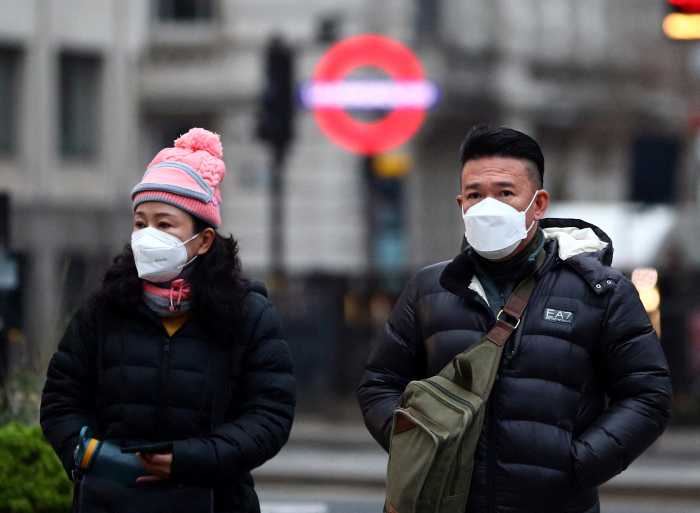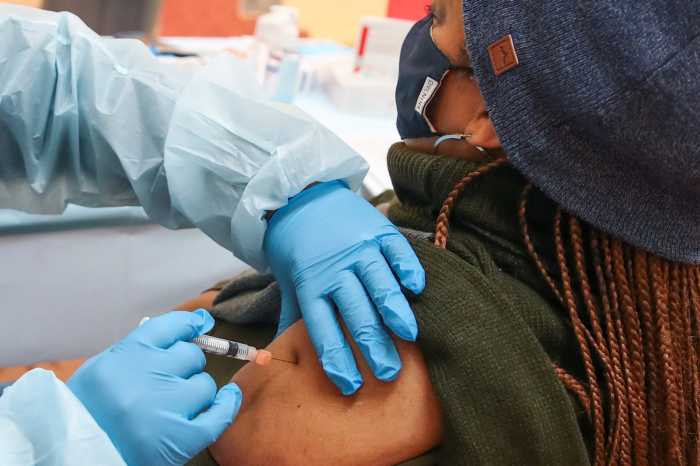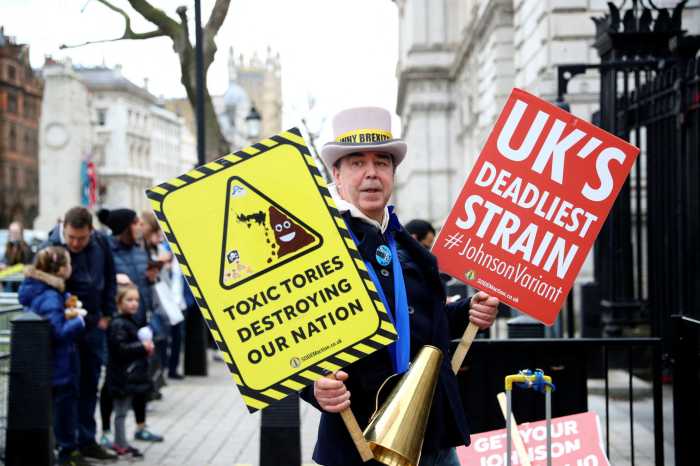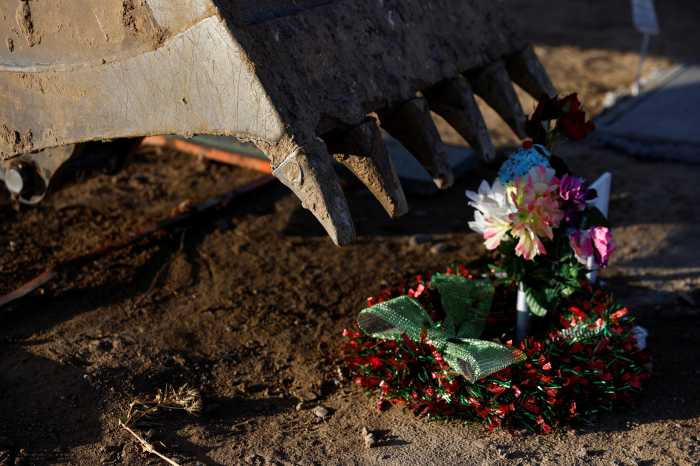GENEVA/JOHANNESBURG – South African data offered a glimmer of hope on Wednesday about the severity of the Omicron coronavirus variant, but World Health Organization officials cautioned that it was too soon to draw firm conclusions as the strain spread across the globe.
With the second Christmas of the pandemic just days away, countries imposed new restrictions on their citizens while they worried about the damage the variant might inflict on their economies.
Plans for Christmas parties and celebrations were wiped out from London to New Delhi amid the uncertainty.
Omicron was first detected last month in southern Africa and Hong Kong. Preliminary data indicated it was more resistant to vaccines developed before it emerged.
But a study by South Africa’s National Institute for Communicable Diseases suggested that those infected with Omicron were much less likely to end up in hospital than those with the Delta strain.
COVID-19 cases also appear to have peaked in South Africa’s Gauteng province, the region where Omicron first emerged, it said.
The study, which has not been peer-reviewed, compared South African Omicron data from October and November with data about Delta between April and November.
“In South Africa, this is the epidemiology: Omicron is behaving in a way that is less severe,” the NICD’s Professor Cheryl Cohen said.
“Compellingly, together our data really suggest a positive story of a reduced severity of Omicron compared to other variants.”
However, the WHO technical lead on COVID-19, Maria van Kerkhove, said the U.N. agency did not have enough data to draw firm conclusions about the severity of the Omicron variant.
The data was still “messy” as countries reported its arrival and spread, she told a briefing in Geneva.
“We have not seen this variant circulate long enough in populations around the world, certainly in vulnerable populations. We have been asking countries to be cautious, and to really think, especially as these holidays are coming up.”
The WHO’s European head told Reuters in Brussels that three to four weeks was needed to determine Omicron’s severity.
Hans Kluge said that Omicron, already dominant in Britain, Denmark and Portugal, was likely to be the main coronavirus strain in Europe in a few weeks.
“There is no doubt that Europe is once again the epicenter of the global pandemic. Yes, I’m very concerned, but there is no reason for panic. The good news is…, we know what to do.”
Meanwhile governments raced to contain the variant’s rapid spread, urging citizens to get vaccinated as Omicron upended reopening plans that many had hoped would herald the end of the pandemic.
Germany, Scotland, Ireland, the Netherlands and South Korea have reimposed partial or full lockdowns or other social distancing measures in recent days.
Germany’s health minister said he had not ruled out a full lockdown.
Italy was preparing new measures and might make vaccinations obligatory for more categories of workers, Prime Minister Mario Draghi said.
Austria is to order a 10 p.m. close in the hospitality sector and classified Britain, Denmark, the Netherlands and Norway as risk areas, meaning arrivals from there must go into quarantine if they have not had a booster shot.
Belgium, the Czech Republic and Spain were also considering new curbs. The Indian capital of New Delhi banned Christmas and other celebrations ahead of the New Year.
The Chinese city of Xian – home to the Terracotta Warriors – told its 13 million residents to stay at home as it struggles to contain rising COVID-19 cases under Beijing’s zero-tolerance policy.
Policymakers across the world are trying to address the economic blow that might come from new outbreaks.
On Wall Street, concern about Omicron upending the economic recovery lingered and U.S. stock indexes were mostly flat at the market open.
“Overall the volatility for December has been much higher than usually seen,” said Anu Gaggar, global investment strategist for Commonwealth Financial Network. “The Santa Claus rally is slightly lower this year.”
Some 300 South Korean business owners protested in Seoul on Wednesday against the return of strict social distancing rules, urging the government to scrap its “vaccine pass” policy and compensate for losses.
Israeli Prime Minister Naftali Bennett welcomed a Health Ministry panel’s recommendation that over 60s, those with compromised immune systems and health workers should receive fourth COVID shots.
More than 275 million people have been reported to be infected with the coronavirus around the world, and nearly 5.7 million have died, according to a Reuters tally.



